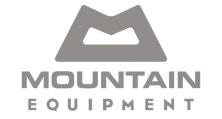Tracking
the Journey
-
Distance to go:
0 Mi
Distance
Ben and Tarka will cover 1800 miles starting from Scott's Terra Nova Hut at the edge of Antarctica to the South Pole and back to the coast again. That's equivalent to 69 back-to-back marathons hauling up to 200kg each (the weight of roughly two adult men) of kit and supplies necessary to survive.
Distances here are shown in statute miles.
Resupply (Day 70)

I'm sorry to have kept you waiting for this update; you might have seen from the tracker that we haven't moved for a while, and you may be wondering what's up. For more than a decade I've been trying to get to the start line of this expedition, and for more than a decade I've been talking about how it would be a journey that was at the very limits of human endurance. Today, in hindsight, I wonder if I really appreciated how prescient and accurate that glib statement was, and yet how little I knew about where that journey would lead me, and what it would take for Tarka and me to dig so deep.
Part of the appeal of this expedition to me was that it seemed just about possible. Roger Mear, one of Robert Swan's team that completed Scott's one-way journey to the Pole in the mid-eighties said they didn't entertain the thought of unsupported return journey as it was plainly "impossible" to haul enough food and fuel. Both Scott and Shackleton, of course, had pre-positioned depots the year before their Pole attempts, and then had further teams hauling provisions for them all the way to the Plateau, peeling away one by one like booster rockets falling back to earth. Scott himself didn't put his own sledge harness on until he got to the base of the Beardmore Glacier, and at most his men pulled just over 90kg each.
By contrast, Tarka and I pulled 200kg each at the start, heavier loads per man than Scott's weakest two ponies each dragged. Peter McDowell, one of the senior directors of ALE, described it as "Fifty percent harder" than anything he had seen in his time supporting Antarctic expeditions. We gambled on getting faster as our loads lightened, and based on our training and experience, Tarka and I had secretly set ourselves the goal of covering 42km -a full marathon- per day on our return from the Pole to the Beardmore. We planned our food and fuel to match, going light and -we hoped- fast, with almost no leeway for error or a let-up in pace. This is why we did such a big day to turn at the Pole, and why we've had no time to rest properly since. We had two-and-a-half hours' sleep on our Pole day, and haven't had more than five hour's sleep for nearly two months. Our only full rest day was 55 days ago. The toll this effort has taken has been quite something, and the speed we hoped for never came.
Our near-empty sledges still felt heavy and the energy that carried us up the Beardmore, and indeed to the Pole itself in record time despite dragging more than anyone in history, started to wane dramatically in the last few days. What's more, we've been running lower on food as we failed to meet our mileage targets. Six days ago we started to eat half rations, and I've felt shattered every day since, aware that I was depleting my body at a rate that might have been reckless. My stomach growled permanently, my ribs became more prominent by the day, my legs were painfully weak and my mind and thoughts and decision-making grew foggy and dim. On our second day of half-rations I got dangerously cold when I had to remove my outer jacket in the middle of a storm to add more insulating layers, and it was only Tarka's help -zipping up my jackets like I was a toddler while my cold hands hung useless by my side- that got me out of trouble and through a very dark day indeed.
I've been reluctant to say so (sorry mum!) but we've both been on the ragged edge for a while now, and on New Year's Eve, we set out on what was to prove the hardest day of the expedition. It was Tarka's turn this time to struggle, and I'd reached a state where I was barely able to realise it. The windchill was -45 degrees centigrade when I recorded it, and we stayed outside for more than 13 hours, on fifty percent of the food I'd intended and wearing almost all the clothes we had with us. At breaks we would eat halved energy bars and our normally-sweet drinks tasted like lukewarm dishwater with a hint of lemon. Towards the eighth or ninth hour Tarka's normally rock-steady metronomic pace started to become erratic and he seemed to stagger and stumble more than usual on ridges and divots in the snow surface. He stopped mid-session, in a howling blizzard, to remove his outer gilet (the Primaloft-insulated Mountain Equipment Compressor vests that have served us so well here) and flipped back his hood as if he were too hot. I know -as a professional leader of expeditions to the coldest places on the planet- that these are tell-tale signs of hypothermia, yet I was on the limit myself and failed to react. All I can remember from that afternoon that drifted into evening, with the dim sun slowly wheeling around us and the horizon erasing itself and reappearing again in the whirling fog of spindrift, was being unable to think of anything more than the battle raging in my head against the part of me that wanted so desperately to stop. Just to lean my shoulders on my ski poles and slump forwards against the resistance of my harness and rest, and to hell with the consequences. I wondered at times if I fell over whether I'd have the strength to stand up again, the energy to yell for Tarka, or whether he'd even notice me calling over the noise of the wind.
When I took over the lead I kept turning back to see Tarka -normally right on my heels- drifting further behind me. I stopped a few times to let him catch up, but it was too cold for me to wait for more than a minute or two before I started shivering, so I raised a single ski pole, he raised his in reply -a signal we've often used here- and I shuffled on. After doing this a few times, with Tarka receding as if the horizon was sucking him backward like quicksand, he stopped raising his pole. I waited, but by now he was a tiny dark speck in the white that took forever to grow. I unclipped my harness and started to put the tent up, feeling dizzy and breathless myself, and taking what seemed like ages to match the poles to their corresponding fabric sleeves, like a drunk taking some sort of coordination test. "Sorry I'm late", said Tarka as he arrived, but it sounded like someone else entirely, his words mumbled and slow.
As we finished slowly setting up camp, I saw he was fumbling in his giant outer mittens with the plastic buckles that strap our sledges closed. "I can't feel my hands", he said through a mask encrusted with ice, his shoulders slumped forwards. As we zipped ourselves into the porch of the tent to take our boots and outer layers off before climbing into our sleeping bags, we saw that the tips of his thumbs were at least badly frostnipped, if not lost entirely to frostbite. I remember feeling a mixture of fear and anger, both at him and at myself for letting this happen. I pulled up my jacket and fleece so he could warm his hands in my armpits, and to my relief the colour and circulation started to return. We ate our watery half-dinners in near-silence and fell asleep exhausted and cold, knowing we would have to match the same distance the next day.
Our depot was still 74km away and we had barely more than half a day's food to reach it; eight energy bars each, half a breakfast and half an evening meal. 16km into the following day Tarka started to slow again as he led, before stopping entirely and waving me forward to talk. "I feel really weak in the legs again", he said. "OK. What do you want to do?" I answered snappily, before realising this was on me. I came here to be challenged and tested, to give my all to the hardest task I have ever set myself and to the biggest dream I have ever had. And here was the crux. This was the moment that mattered, not standing by the Pole having my photograph taken, but standing next to my friend, in a howling gale, miles away from anyone or anything. "Let's put the tent up", I said, "I've got an idea".
My idea was to call for a resupply. To have more food and fuel flown to our position so that we could rest and recover before finishing this journey. A decision that changes the status of this expedition from "unsupported" or "unassisted" or whatever semantics you wish to choose to the opposite. Part of me also feels it inevitable that we and this journey would face critics even if we'd done it in period clothing eating pemmican and pony meat. Yet in an instant I realised that my and Tarka's lives are not something I wanted to gamble with, and that we had given our all. We were lucky that neither of us had collapsed the day before, and I knew we couldn't possibly have hoped to recover on our meagre rations from the physical holes we'd dug ourselves into.
At the other end of the world, on the other end of a crackling and hissing satellite phone line, our expedition manager Andy Ward sprang into action, and things happened incredibly quickly, with a ski-plane carrying eight days' of rations landing twelve hours later. The weather worsened as we waited and I feared the flight would be aborted, or that a bag would be air-dropped at speed and lost in the blizzard, but in a beautiful twist of what some might call fate, the pilot was Troy, the same man that picked me up from the Arctic Ocean after my 72-day solo expedition nearly ten years ago, and in my eyes the finest polar pilot in the world. The Twin Otter appeared through a tiny hole in the rolling cloud and swang over us once before landing on the ridged and uneven snow surface and taxiing right up to our tent, its wing-tip almost above our roof. The wind was still blasting and the plane's skis were almost hidden under the blowing snow. "I'm sorry about the weather", I said to Troy, amazed that he'd been able to land. "Oh, it was fine", he replied modestly.
The hours we spent waiting were, I fear, dark ones for Tarka. He seemed a broken man. "It'll look like my fault", he said, "and that's a good thing for you." This was Tarka through and through. Weeks ago he said humbly, "If there are media at the airport when we get back, I'm happy to help with the bags while you talk to them." He finally admitted last night that when I was struggling (and if I'm honest now, on the verge of wanting to quit) a few weeks ago he'd taken food bags from my sledge while I was in the tent to help lighten my load without telling me, so he'd been pulling more weight than me for weeks.
Tarka is the hero here, and the irony of our situation is that I would never have made it to this point without his herculean efforts; his giving everything he has to this goal. I'm proud of how deep we have each dug, and I am amazed and humbled by Tarka's sacrifice. He has pushed (or indeed pulled) himself until he dropped, and I'm also as exhausted as I've ever been. For weeks now I have slept fitfully and woken up cold. We are both alarmingly lean, and we have both struggled for a while to maintain trains of thought or decent conversations. I suspect my writing has been going downhill too.
And now we are lying here resting, like two new men after ten hours' sleep, full-bellied and warm again for the first time in weeks, before we move north again to complete this unfinished journey. Our status has changed, but how little that means to me now. Scott didn't wear his harness until the Beardmore and would have been "supported" in modern polar parlance. I don't think we made any mistakes, and I don't think we could have done anything more, or pulled any more food up here. We travelled 5.6km per day at the start with 200kg per man, greater loads than each of Scott's weakest ponies hauled.
I know a few commentators have suggested that we've been "lucky" with weather and surface compared to a century ago, but I don't believe this is true. Our luck is in having GPS units that allow us to ski blind into whiteouts, in having synthetic skins on our skis that allow us to grip, and in having the nutrition and fitness and clothing to survive dragging loads that would have been unthinkable in that era. We have had no choice but to move every day, whatever the weather, for more than 70 hours per week of intense physical exertion, twice as much as a Tour de France cyclist, over ten weeks and not three.
Now my head is clearer and my body is recovering, I think of status and records and achievement and impermanence. Every gold medal one day ends up in a collectors' cabinet, an auction lot or a drawer in an antique shop. Trophies oxidise, the ribbons of rosettes curl and fade. I don't know where my proudly-won Scout badges are now. I hope our journey has not been diminished in your eyes now it is "imperfect". Yet of course for us humans, perfection can never really be reached, contentment is either here today, with the striving and the mess we all inhabit, all open loops and half-finished lists and could-do-better-next-times, or we will never find it. And the biggest lessons -to me at least- of this very long, very hard walk, are perhaps that compassion is more important than glory. Friendship and kindness and taking care of each other -like Tarka secretly removing weight from my sledge- matter more than achievement or status. The joy of being outdoors and alive in the wild, pushing ourselves harder than anyone will ever understand, will I think in time prove more wholesome and satisfying than the pride of any public recognition on our homecoming.
We're resting up today, we're safe, we're well, we'll do a shorter day north towards our mid-plateau depot tomorrow and we'll carry on home from there, retracing our steps to Ross Island. We're still in the process of making a journey that's never been done before, and I hope you'll still keep following. Tarka and I are humbled and grateful for your interest and support, and I am more thankful than I know how to say for Intel and Land Rover and all of our other partners for standing by us in our most trying days. Onwards.










Comments
# Jeffrey Dill, January 3rd 2014
You guys are hero’s. This has certainly been my favorite reading yet.
Congratulations on everything you guys have accomplished together so far!
# dj, January 3rd 2014
Incredible - this is the 170th comment (at 6pm MST), a new record for this blog and I’m writing this from the perspective of having read each and every one. As we all should be, I’m grateful that the incident didn’t take a physical toll more than bruised pride.
Even though none of your posts actually have stated that you actually take the time to read these comments, the fact that you have a Pilot lets me think that you could if you wanted to and I certainly hope that you do take the time to do so. IF you do, I hope that your take away is that your (and any of your staff that shares it) fear of what commenters might say sells your followers short. I’m sure that all those you care about, and have been protecting from your true conditions, are extremely RELIEVED to find out.
Look guys, your expedition IS WHAT IT IS - no more, no less; despite any assurances from marketing managers or well wishers. If you need to leave more caches, so what? That’s what it took. If it takes you an extra week, so what? That’s what it took, and the world’s fund of knowledge knows more now that it did before you tried it. If it takes more calories, or different planning, or pre-planned caches… so what? In the cosmic scheme of things, only a complete fool would hold to false assumptions in face of direct evidence or continue to promote a fantasy in order to save face.
“I hope you’ll keep following”—what are you even thinking?! Are you kidding us? You really do need to:
1) Re-think your assumptions about your ‘followers’ of your blog - ALL of the several different types;
2) Spend some quality time, before you get back, re-examining what you consider “success.” To me, it seems to be needing a bit of a tweak; and,
3) Don’t be so friggin’ afraid to “stop and ask directions!” (A trait, I’m sorry to see, that isn’t just confined to the male gender on this side of “the pond.”)
Here’s to a safe (and a tad bit more ‘transparent’) second half of your journey back to McMurdo! As one of your posters from New Zealand told you: Ā, upane! ka upane!
# CaninesCashews, January 3rd 2014
Hi Guys,
Was really busy today and I didn’t see this post until 1am, but felt so moved that I had to reply immediately – forgive me, I tend to be a bit rambly at 1.30 in the morning…
Well first of all – safety is paramount in these situations and clearly you have made the right call here. You are the guys on the ground and only you can make the big decisions.
There should be no guilt here for either of you – I agree entirely with Richard P. The expedition is what it is – you had in your mind unsupported, but the facts are Scott didn’t do it that way. He collected pre laid depots and used the best technology available to him, including motorised sledges, as well as the traditional animals.
You guys have called in food because you need it to survive – this is not a decision you have taken lightly, but it is clearly the right one and I applaud you for it.
I am confident that you will complete this adventure you have tasked yourself with and you will complete it well.
Please don’t think this has become any ‘less’ of an expedition or that this reduces the accomplishment. Quite the opposite, in fact I think this brings it closer to the ethos of Terra Nova.
In the coming days please don’t reproach yourself for a good decision, well made, in difficult circumstances. Harry S. Truman has the best advice on this, “Once a decision was made, I didn’t worry about it afterward…”
I for one will be on here every day as usual, offering my small tokens of support. Hopefully they will help just a tiny bit to get you to that little hut, where a dream forged over a hundred years ago is waiting to be completed.
God Speed and stay safe,
Gav
# Shelly, January 3rd 2014
Dear Ben and Tarka,
Despite what the critics sitting warm in their homes say, one thing is clear you guys are heroes. They could never have done what you two have done over the past 72 days.
Is it really a change in status? Scott had ponies you had one air supply drop. What would the ponies of Scott’s era be considered if not support?
# George Chapman, January 3rd 2014
I’m glad for the time being it looks like they will be able to finish this journey. This team in the end though had some of the same difficulties Scott had 100 years ago. The good thing today is that with modern telecommunications these guys today can call in and get help quickly if necessary. Both teams the one from 100 years ago and the one from today miscalculated needed food supplies and their goals were not achieved even though they both gave it their best. What can be learned from this will be decided by others in the days to come. It’s disappointing to see that the ultimate goal of doing this unsupported will not be achieved on this expedition. This challenge will have to wait to another day to be achieved. I know the guys here have planned this for years and even though they have given it their best at the end of the day I’m sure they will be somewhat disappointed. A lot of adventurers strive to achieve a goal but only a few achieve them. As is the case in any sporting event there is always “The thrill of victory and the agony of defeat.”
# Andrea, January 3rd 2014
In the antarctic configuration of indispensable (for warm) short time hence rapid speed and the wheight carried, there is the high probability that it is not about the allotment in the depots, instead, these (the rhythm diminution infinitesimaly till it can not be encompassed the latest few km-s to the depot) being the aleatory effects of the biological efforts, a contingency. Of witch avoidance can not be calculated, and witch is not generated by insufficient nutrition (not for so little the technique human species does not promenades in Antarctica), but witch can develope, function of its appearing moment, the situation of letting without the bags with food.
They are those who have rescued themselves, since the plane was planned with the sponsors they co-opted.
# Andrea, January 3rd 2014
Not the bag with food was and is the center,the daily food does not transform their underlying state, they are not well but are invicti and invicte, i.e. this expedition is an unsupported one.
And it will with necessity change in a supported one when they will be back at the base camp.
# Pidge, January 3rd 2014
This kristoffer bloke may need to find something more constructive to do with his time. Well done boys! Pull on!
# Kristoffer, January 3rd 2014
Everyone needs to relax about the outpouring of reassurance. The only thing the expedition has lost is the billing for being unsupported, and that is a trivial price to pay for being safe.
# Jason Lewis, January 3rd 2014
Brilliant update, Ben. You guys should be very, very proud of yourselves. Inspiration stuff!
# Jennie Hale, January 3rd 2014
Just want to say that I think you two are incredible human beings and tenacious explorers. If we who are reading your amazing blogs could achieve a fraction of what you have achieved, most of us would be astounded and delighted. You are true heroes and enormous congratulations on your achievements to date. And to those who appear to be criticising from the comfort of their warm safe homes, get a life and appreciate what these two giants of men have done and are still doing. WELL DONE!
# Adam, January 3rd 2014
It’s better to ask for help than to beg for an evacuation. It’s tough losing the ‘unsupported’ status after all of this work but you honestly shouldn’t take comments from people who sleep in a warm bed with near limitless access to food (that they haven’t been pulling for the last 2 months) and would never contemplate half the distance you guys accomplish on a warm summers day with no gear to heart. I’ve been amazed at the distance you guys cover every day and quite frankly it’s nice to know that you actually are human and not the indestructible machines that I’ve been visualizing you as.
Keep up the wicked work and let us know if any of your sponsors drop you due to the resupply. I know that I wouldn’t be the only one who reads this blog to express outrage at such a decision.
# Varun S, January 3rd 2014
As someone who struggled to finish a single marathon in perfect Oregon summer weather despite stopping to refuel every 30 mins, I’ve gained a new admiration for professional athletes like yourselves who push their minds and bodies to achieve incredible feats.
Your comments on compassion being more important than glory ring absolutely true. All of us at Intel are cheering for you, keep going!
# Andrea, January 3rd 2014
Maybe in few days you can introduce the Marathons.
This observation: due to the icy air, maybe will be needed also in the mid-day another one big vitamines pill and two krill oil tablets.